The review of systems contains the details of the medical condition of the person. The review systems are divided into different medical words along with its meaning. The template comes in word and PDF format. Some of the Management Review Templates are- General-When patient complains of fatigue Heent: The patient has decreased vision and is blind in the right CARDIOPULMONARY: Patient gets swelling of the legs but no chest pain.
MUSCULOSKELETAL: Patient goes through arthritic complaints, including stiffness, weakness. Constitutional: No weight loss and weakness Cardiovascular: No chest pain and chest pressure. One can get the sample Review of systems that can help in understand the system and follow the same.
Review of Systems PDF
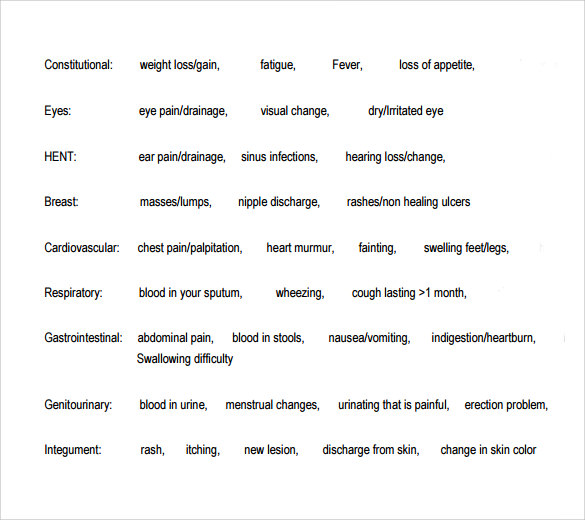
This review system of template comes in PDF format. On the left hand side of the template there are the names of the area where there might be a problem, on the right hand side the symptoms found after the review.
Sample Review of Systems Template
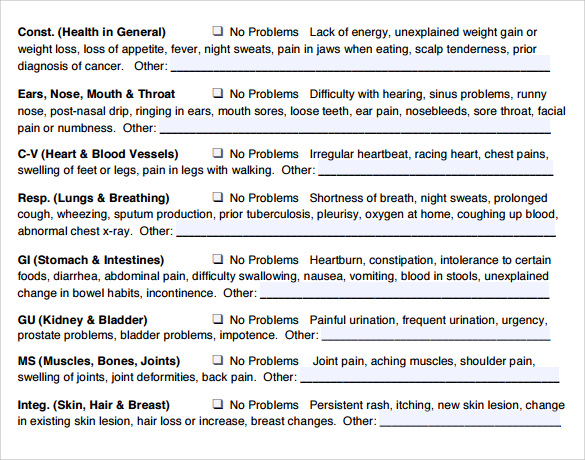
This template of the sample review has three main columns. On the column of the far left of the template there are the body parts mentioned, which were under review. The middle column states no problem and the far right one the symptoms.
Basic Review of Systems Template
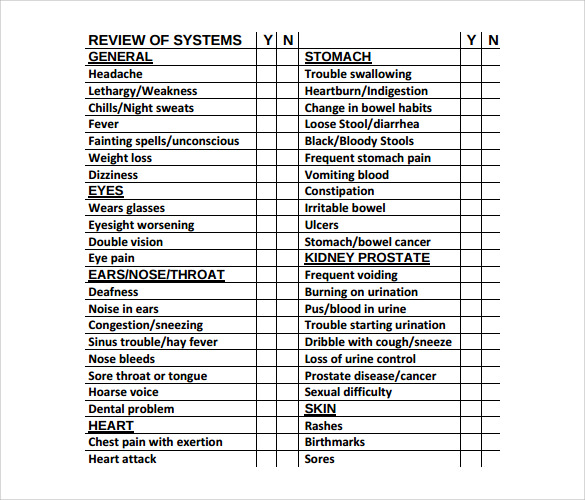
This is a template of the basic review of the general problems of human body. There are names of the problems divided into subsections, against which there are two columns to tick yes or no, stating the symptoms which you may have.
Review of Systems Template
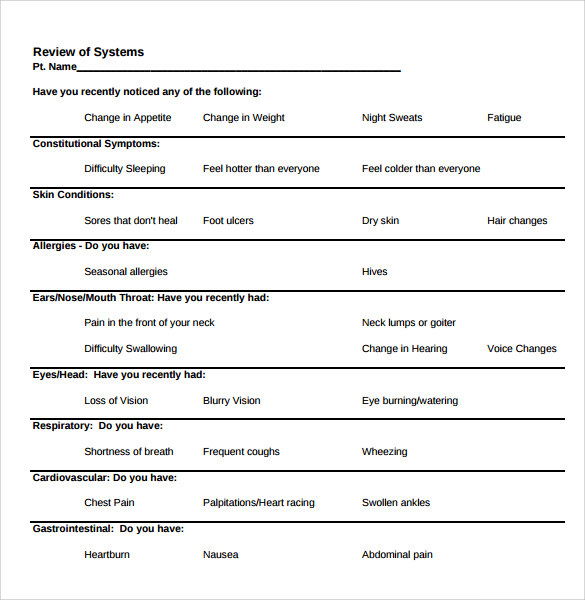
This review system template is framed in a question answer format. On top of the template the name of the patient is mentioned. This is followed by questions on their health such as lack of sleep in recent times, allergies, etc.
Review of Systems Sample
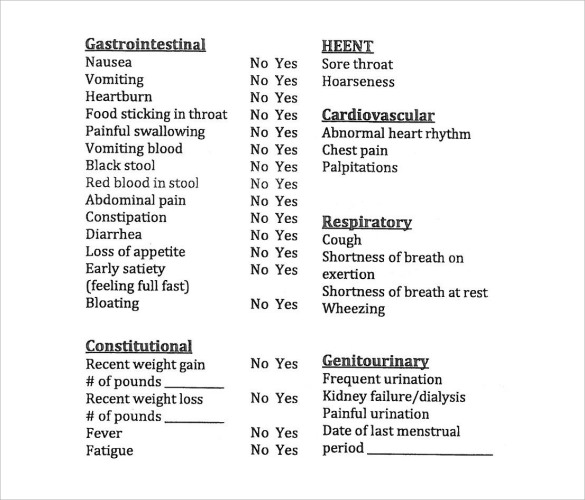
Who Needs Review Of System Templates?
When a person goes to visit a doctor for some medical condition or symptoms, the doctor generally wants a medical history of the patients. Having a review of the system of the patient will help the doctor or any medical practitioner to treat the person better. In hospitals and pathological labs, these samples are made by the dozens.
Thus it is easier for them to prepare these samples if there are templates available, based on which the review can be created. It may not be wrong to say, medical institutions will need these templates in general, for preparation of patient’s reports. You may like Self Review Templates.
What Are The Benefits of Review of System?
A sample of review system thoroughly documents the problems which a person may have. It gives a detailed list of the symptoms of the medical problems he or she might be having at the moment, along with a hint of his or her medical history, both recent and lifelong.
Thus it is important for a proper diagnosis of the patient’s problems that a sample of a review system is provided to the doctor. The advantage of having a review system sample is therefore that if you have a review of systems done, it will be easier for your doctor to detect the problem. You can also see Employee Review Templates.
How to Prepare a Review of System?
Since this is a type of medical document, it is to be prepared with utmost care. There are a number of reviews of system samples and templates available on the internet, and you can select any one of them and follow it. Make sure you put all the information correctly, since even the slightest of misinformation can be bad for the patient.
On top of the report mention the name of the patient, or a unique code, so that it does not get mixed with others. Most of the time the patients feel this system review up, and they should also exercise caution.
Since the review of the medical system contains a lot of medical words, it is better to get it done by an expert. Or else, you can follow the templates available on the internet, some of which have been discussed above. It is useful for determining the medical condition of a person.
If you have any DMCA issues on this post, please contact us!
Related Posts
Sample Business Card Templates
Sample Cashier Job Descriptions
Questionnaire Samples
FREE 10+ Sample HR Resource Templates in PDF
FREE 10+ HR Consulting Business Plan Samples in MS Word | Google Docs | Pages | PDF
FREE 49+ Sample Job Descriptions in PDF | MS Word
FREE 16+ Nonprofit Budget Samples in PDF | MS Word | Excel | Google Docs | Google Sheets | Numbers | Pages
FREE 13+ Academic Calendar Templates in Google Docs | MS Word | Pages | PDF
FREE 10+ How to Create an Executive Summary Samples in Google Docs | MS Word | Pages | PDF
FREE 23+ Sample Event Calendar Templates in PDF | MS Word | Google Docs | Apple Pages
Company Profile Samples
FREE 10+ Leadership Report Samples [ Development, Training, Camp ]
FREE 24+ Sample Payment Schedules in PDF | MS Word
FREE 10+ Return to Work Action Plan Samples in PDF | DOC
Autobiography Samples & Templates